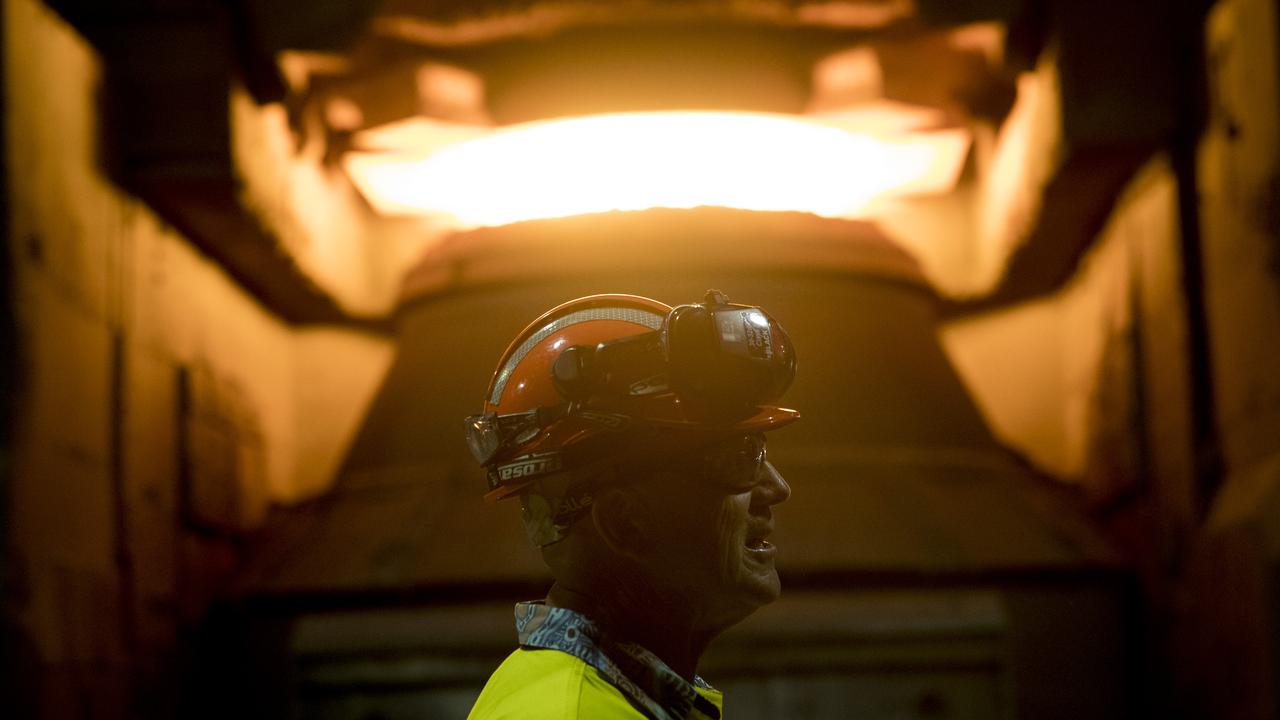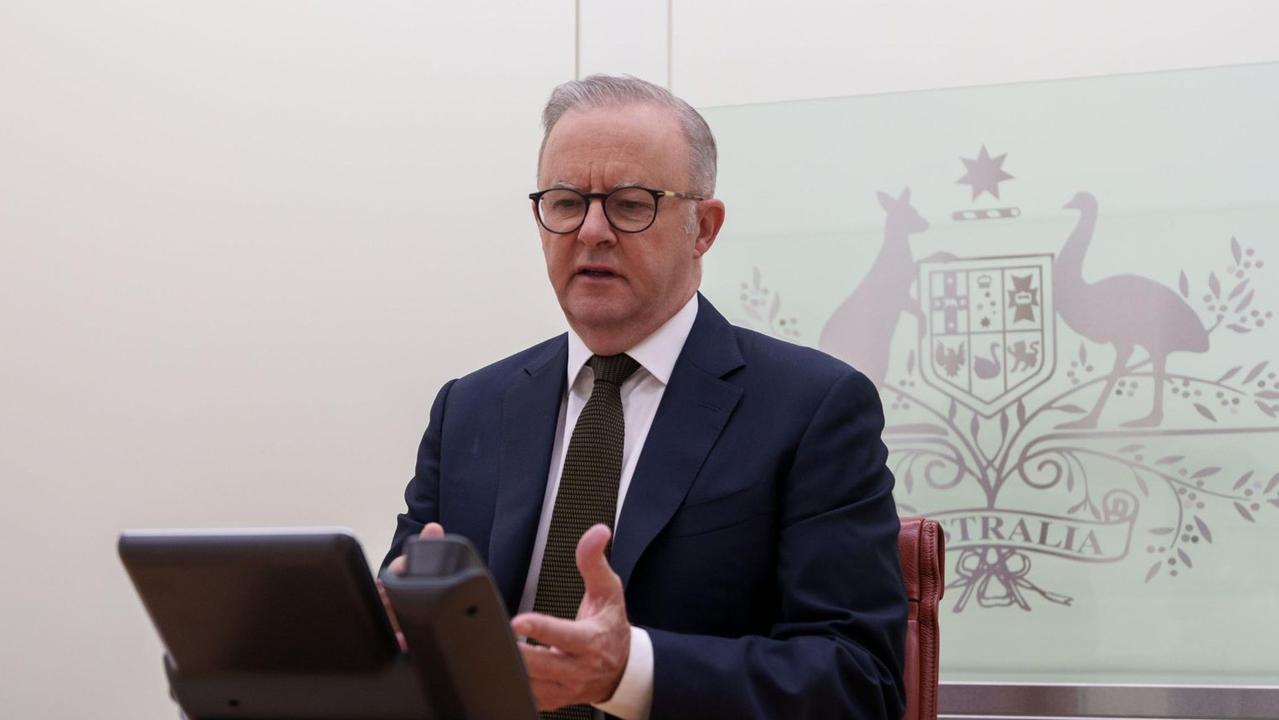Miranda Devine: The vaccine most Australians will get is useless against the worst forms of COVID
Most Australians will receive the AstraZeneca vaccine but the Federal Government is hedging its bets by ordering the Pfizer equivalent as well, writes Miranda Devine.
Opinion
Don't miss out on the headlines from Opinion. Followed categories will be added to My News.
It’s nice that Prime Minister Scott Morrison was vaccinated against COVID-19 this week.
Just a pity it’s two and a half months after America and the United Kingdom started rolling out shots — and the vaccine most Australians will receive from AstraZenica is significantly less effective than the Pfizer shot he received.
Despite the bad press, America has delivered more vaccinations than any country in the world. And regardless of Joe Biden’s pretense that he had to “start from scratch” when he became president, the fact is that by Inauguration Day, January 20, one million shots already were being administered each day.
But what’s just as important as shots in arms is that the vaccines Americans receive work.
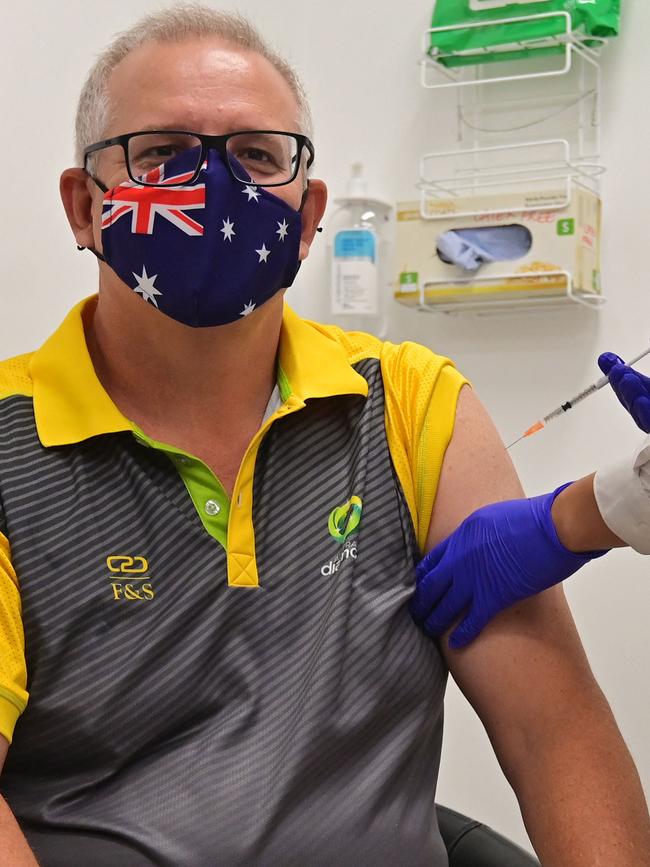
The Pfizer vaccine is 95 per cent effective and Moderna’s efficacy rate is 94 per cent.
Most Australians will receive the UK’s Oxford/AstraZeneca vaccine, which is only 62 per cent effective and is virtually useless against the South African mutation of the virus, leading South Africa to halt distribution this month, and Sweden and Poland decide not to give it to the over-65s.
As a result, there has been a last-minute scramble by the Morrison government to secure extra supplies of the Pfizer vaccine but now we are in a queue behind the rest of the world.
An extra 10 million Pfizer doses were secured this month, doubling existing supplies, enough to vaccinate 10 million people.
But what about everyone else?
The federal health department put its eggs into a couple of baskets, a local vaccine abandoned by the University of Queensland after producing false positive HIV results in patients, and 54 million doses of Astra Zenica’s vaccine, which can be manufactured relatively cheaply in Victoria.
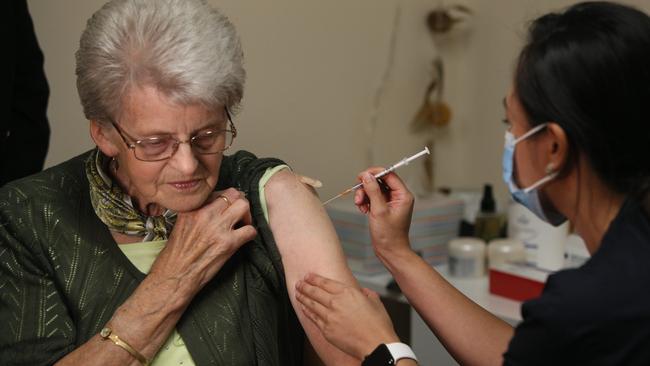
Picking those two winners has left taxpayers at least $2 billion out of pocket with little prospect of herd immunity any time soon.
Professor Nikolai Petrovsky, of Flinders University, is furious that the government ignored other vaccines in development around the world, including, he says ruefully, his own promising Covax-19.
“We still don’t understand why the Federal Department of Health refused from the very start of the pandemic to even look at any other vaccine candidates including our Covax-19 candidate, instead choosing to exclusively make their deals with CSL,” he says.
“At the time we raised our concerns with the Department of Health regarding the risks … but we were just met with a brick wall
“Instead, [they] announced they were making advance vaccine purchases exclusively with CSL, who were to supply both the University of Queensland and the Oxford/AstraZeneca vaccines.
“What many people might not realise is that CSL used to be part of the Department of Health, [and] furthermore, AstraZeneca’s CEO was sitting on the CSL board, making this a very cosy insiders’ deal.”
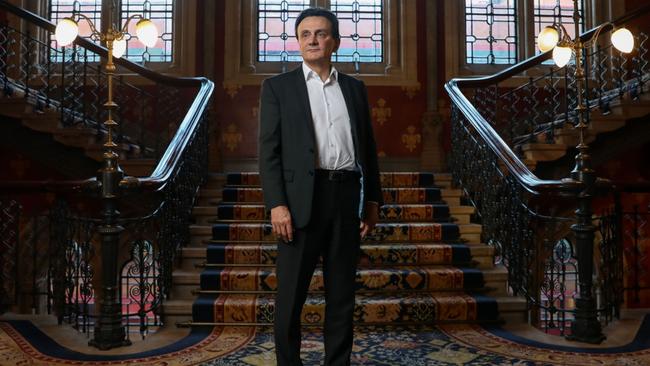
To be fair, AstraZeneca’s CEO Pascal Soriot was only on CSL’s board for five months before stepping down last month to avoid a potential conflict of interest after the company bought an American pharmaceutical firm.
In any case, Petrovsky says we should not persist with an inferior vaccine when better shots are available.
He is not the only expert calling for a halt to the AstraZeneca rollout so Australians can wait for one of the more effective vaccines.
Prof Stephen Turner, president of the Australian and New Zealand Society for Immunology, told Nine Media he would not be “deploying [AstraZeneca’s vaccine] widely because of that lower efficacy… You cannot rely on it to establish herd immunity.”
Kirby Institute epidemiologist, Professor Raina MacIntyre, told newsGP last month: “We can still change course and say ‘OK, this vaccine really doesn’t look as good as the other two... Let’s try and get some Moderna vaccine’.”
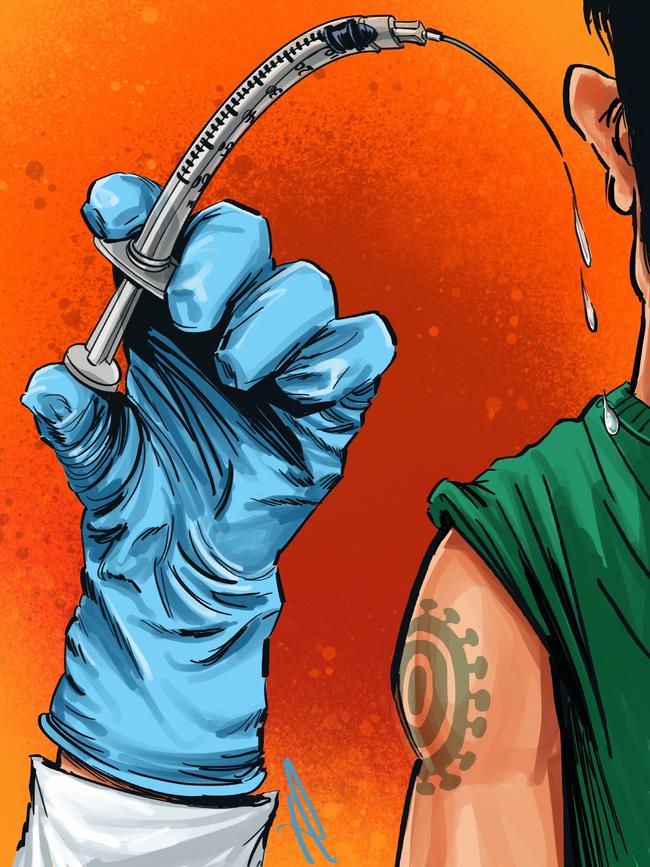
Conversely, Doherty Institute immunologist Professor Dale Godfrey defends AstraZeneca’s vaccine, telling newsGP it protects “100% against severe COVID. So, if the priority is to stop people from going to hospital and dying from COVID, the AstraZeneca vaccine looks like it will do that”.
With differing expert advice, you can see how tricky public health policy is for governments dealing with a deadly new virus.
But Petrovsky is right to say the ACCC should investigate how Australia ended with a sub-par vaccine.
It was only late last year, after the Queensland vaccine fell over and AstraZeneca reported disappointing Phase 3 results, that the government tried to secure Pfizer and Novavax vaccines.
“The only reason I see for the government still insisting on the use of the AstraZeneca vaccine is to avoid questioning of their dealings with CSL,” says Petrovsky.
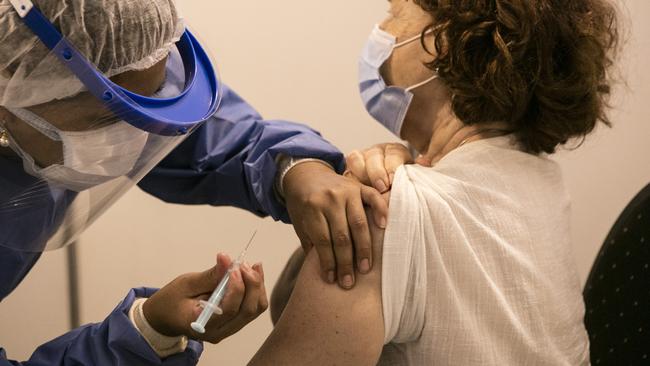
Of course, he has an axe to grind, since the government gave CSL a billion dollars to build a new vaccine facility in Victoria, while his research was awarded a paltry $1 million.
But it will be cheaper in the long run if Australia switches to a more effective vaccines. Voters will understand there was no predicting which one would turn out best, but they will not forgive a futile rollout dressed up as a triumph.
The Trump administration’s Operation Warp Speed pre-purchased 1.2 billion doses of seven different vaccines so those which proved to be safe and effective in clinical trials could be manufactured and ready for arms as soon as they were approved. Lives have been saved by the accelerated process.
You wouldn’t wish America’s death toll on your worst enemy, with 500,071 people COVID victims as of Monday, a number president Biden belabored in a lugubrious White House ceremony cynically aimed to plunge the populace further into despair.
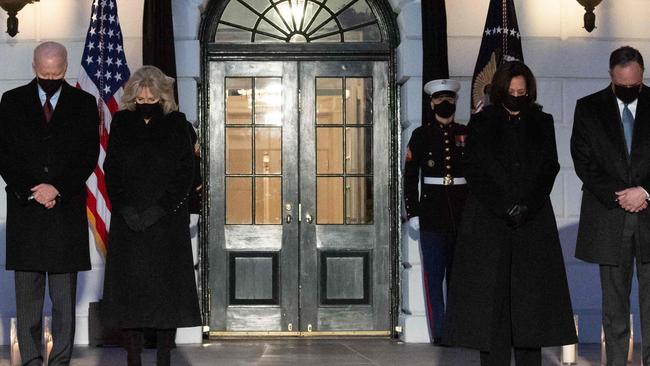
But there is untold good news to report.
Coronavirus cases in America have dropped a record 65 per cent in the last month and Johns Hopkins professor Martin Makary says the rapid decline can be explained only by natural immunity, because vaccination rates are too low to be the cause.
He even suggests America could hit herd immunity by April.
Australia is far from that happy milestone after closing its borders to the virus. That was a logical choice Australians made to limit deaths and enjoy a relatively normal life.
But the downside is that the population still is exquisitely vulnerable to contagion. Few countries are more in need of an effective vaccine.
Miranda Devine is in New York for 18 months to cover current affairs for The Daily Telegraph


